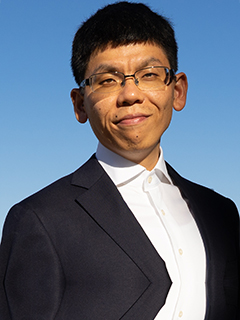Q+A with Wei-Lin Chen
Wei-Lin joined NZWRI in October 2023 as a research fellow. He completed a PhD in Economics at the University of California, San Diego, in September 2023. His primary research interests are in public and development economics, with a particular focus on group disparities in public policy practices.
When asking Wei-Lin to fill in the blanks "Economics is ___, ___, and ___ ", he said:
"Economics is preference, constraint, and freedom to choose."
1. What made you choose a career in economics?
I find reading and exploring economic ideas (almost) always interesting! What I think is rare is that I still find it interesting to examine the same research questions even after I have stared at them for a couple of years. So I thought, what a treasure!
2. Describe one of your ongoing research projects.
In one ongoing project, I studied the impact of party affiliation of sheriffs on traffic stop policing behaviours in North Carolina. The sheriffs are the top law-enforcement leaders in each county and are directly partisan elected every four years in North Carolina. I exploit the party turnovers induced by elections and have the counties with a "Democrat-to-Democrat" sheriff transition in the control group and the counties with a "Democrat-to-Republican" sheriff transition in the treatment group.
3. Describe the key results.
Using traffic stop data from 2007-2019, I find that sheriff offices with a Democrat-to-Republican sheriff turnover, rather than a Democrat-to-Democrat sheriff transition, have an increase of African American drivers’ share in traffic stops by 3.2 percentage points, a 13.5% increase compared to the baseline. The increase in racial disparities in traffic stops is not accompanied by an increase in efficiency in traffic stops, measured by unconditional hit rates (the number of contraband found divided by the number of stops).
4. What makes this research impactful?
The criminal justice system in the United States is deeply related to and influenced by partisan politics due to the political process of personnel selection. Although leaders of local law-enforcement agencies are often elected, the impact of political preferences on frontline policing is not well understood. This paper connects the political party affiliation of leaders with one of the most frequent interactions Americans have with law enforcement officers: traffic stops.
5. What do you enjoy doing in your spare time?
I like reading, cooking, watching movies, and hiking. Cooking is therapy for me.
